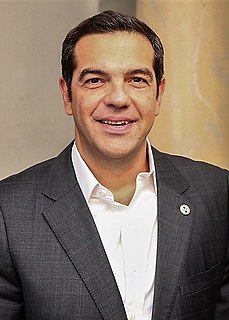A Quote by Wolfgang Schauble
I don't know how many resolutions from the IMF or G-20 we have already written saying that such [financial] reforms are necessary for new growth.
Related Quotes
China's accumulation of reserves is a result of the IMF's mismanagement of the Asian financial crisis a decade or so ago. If countries know they can't rely on the IMF to help them, their best defense is their own reserve cushion. In a time of spreading global recession, too much emphasis on savings in surplus countries like China can impede prospects for global growth.
The object of a New Year is not that we should have a new year. It is that we should have a new soul and a new nose; new feet, a new backbone, new ears, and new eyes. Unless a particular man made New Year resolutions, he would make no resolutions. Unless a man starts afresh about things, he will certainly do nothing effective.
Many people have trouble sticking to their resolutions, and there is a simple scientific explanation for this. In 1987, a team of psychologists conducted a study in which they monitored the New Year's resolutions of 275 people. After one week the psychologists found that 92 percent of the people were keeping their resolutions; after two weeks we have no idea what happened because the psychologists had quit monitoring.
When it comes to sticking to your resolutions, research has shown that 'action-oriented' resolutions have a better chance of being upheld than 'idea-oriented.' For example, a resolution to lose weight is really only an idea with nothing actionable to do. However, sticking with that goal in mind, you could make the resolution action-oriented by saying 'get up 30 minutes earlier every Monday, Wednesday and Friday and do a 20-minute workout at home before work.' Now you have an actionable path on how to achieve your goal.
Sometimes we know the best thing to do, but fail to do it. New year's resolutions are often like that. We make resolutions because we know it would be better for us to lose weight, or get fit, or spend more time with our children. The problem is that a resolution is generally easier to break than it is to keep.


































